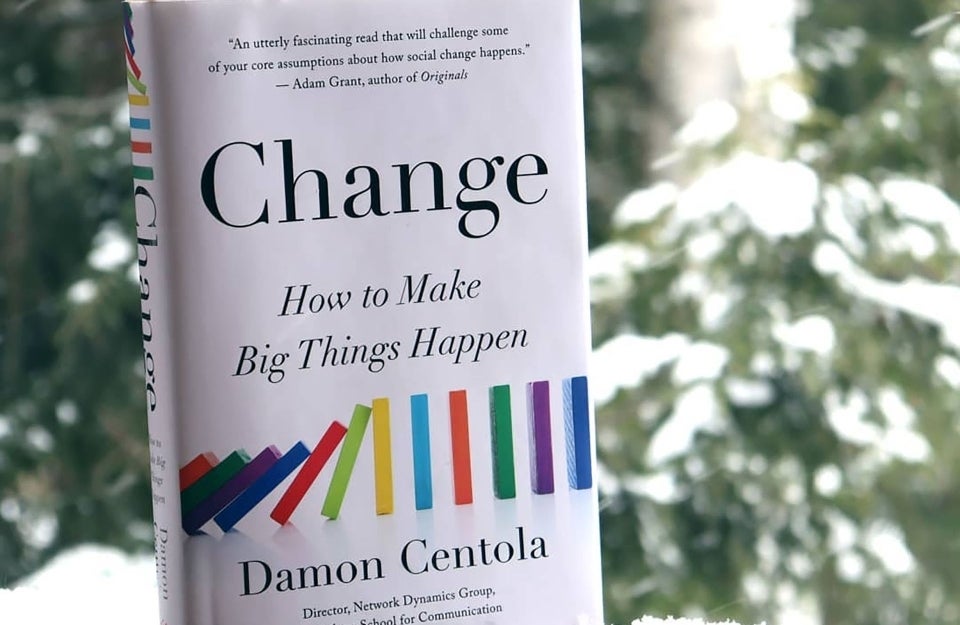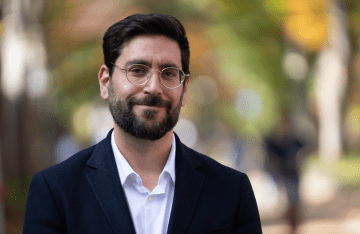Damon Centola Publishes New Book on Behavior Change
Change: How to Make Big Things Happen was published by Little, Brown & Co.

Photo Credit: Damon Centola / Instagram
How do you create the change you want to see in the world? Released today, Professor Damon Centola’s newest book, Change: How to Make Big Things Happen (Little, Brown & Co., 2021), aims to answer that question by drawing on his research rooted in the fields of sociology and communication.
Traditional wisdom about how ideas spread is focused more on the spread of information than beliefs and behaviors. But Centola’s book argues that lasting change in what we think or the way we live is not transmitted from person to person in the simple way that a virus is. The real story of social change is more complex. When we are exposed to a new idea, our social networks guide our responses in striking and surprising ways.
"Behavior change, we now understand, is not like a virus, spreading through casual contact," Centola writes. "It does follow rules, but learning these rules takes us beyond the spread of diseases to reveal a process that is deeper, more mysterious — and much more interesting."
Drawing on examples including the spread of COVID-19, the success of the Black Lives Matter movement, the failure of Google+, and the rise of political polarization, Change presents groundbreaking and paradigm-shifting new science for understanding what drives change, and how we can change the world around us.
In the video below, Centola gives an introduction to the book:
Professor of Communication, Sociology and Engineering at the University of Pennsylvania and Director of the Network Dynamics Group at the Annenberg School for Communication, Centola studies social networks and behavior change. His work identifies the social causes of disease outbreaks; the origins of political conflict and ideological polarization; and the dynamics of tipping points in social norms. His research has been widely published, including his first book How Behavior Spreads: The Science of Complex Contagion (Princeton University Press, 2018).



